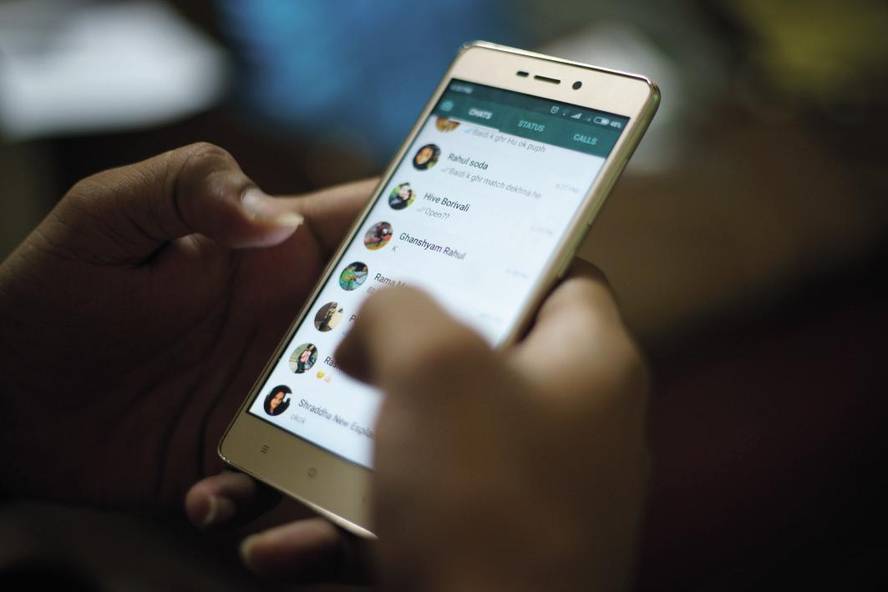RCS, new standard instant messaging
We all know the SMS service (Short Message Service). The first mobile phones, along with the possibility of making calls, brought this service that allows sending messages up to 160 characters; and messages could be sent from a phone from any company to a phone from any other company. As for text, this type of messaging was the one that dominated for many years on mobile phones and remains in certain countries and uses such as marketing.
However, it is clear that in recent years another type of text messaging has been imposed, at least for our personal use: so-called instant messaging (IM). Services like WhatsApp, Facebook Messenger, Telegram, etc. Instant messaging is different from SMS. On the one hand, the SMS service uses the mobile phone line and instant messaging the Internet connection (since instant messaging services were extended when mobile phones became smart, i.e. when smartphones with Internet connection proliferated). On the other hand, the usual instant messaging services allow you to do things that go beyond text messages: reception confirmations, possibility to attach files of different type, group interviews, etc. And the last, but not least, is that these services are not standard and compatible with each other, that is, to use one of them it is necessary to open an account in which it only serves to communicate with those who have an account.
Multiple services, standard and compatible between operators
To address this last problem arises the protocol RCS (Rich Communication Services). From the inside it is an SMS service: it is a communication protocol between telephone operators and between operators and mobile phones, uses the telephone connection and is standard. This allows communication between customers of all operators. But from the outside it is an instant messaging service: it allows to conduct group interviews, add location, images, audios and videos, confirmations of reception, notice that the interlocutor is writing, conducting audiences and videoconferences, access to the agenda of contacts...
In fact, telephone operators had been defining this protocol for some time. However, the activities of consensus and definition of standards between them go little by little, the instant messaging systems we know advanced and appropriated the market.
However, in the last year and a half things have accelerated a lot. In November 2016, the first version of the RCS protocol was agreed and published. In addition, Google also supported the project by announcing and publishing the Jibe platform for operators and the Android Messages app for phones. Thanks to Jiber, telephony companies can easily implement the RCS service and offer it to their customers. With the Android Messages app, customers can enjoy the RCS service if their operator has it implemented. Since then, telephony companies are gradually incorporating the protocol into their infrastructure. In Spain, for example, in November 2017, several media outlets announced the next launch of the country's most important telephone companies. The companies have put several trade names to the RCS service: Advanced Messaging, Joyn... As for phone manufacturers, most have announced that they will protect it and that their devices will have Google's Android Messages app installed.
Will it succeed?
It is to be seen, however, whether the RCS will succeed and will beat current non-standard instant messaging services. In fact, it won't be easy to replace the usual service people use with another one that doesn't offer new functionalities, just because of the standard and compatibility between operators.
In any case, I believe that the RCS has possibilities to cover the market. If all the phone companies implement, the new phones have installed the app and you do not need an account to use it (enough with the phone number), I think there can be great possibilities to use RCS, since people will not have to install any other app, nor have to open or activate the account in WhatsApp or similar.
However, there are two factors that can affect or prevent RCS expansion. The most important thing is how operators will try to benefit from RCS services. And for many people, the only reason phone companies drive RCS is that instant messaging services have taken away the benefits they got from calls and SMS, and the concern is if they won't try to charge RCS services. For the moment, in the areas where the RCS has been opened, the service is not being charged (normal, since it would not get anyone to leave other instant messaging services), but in the future and successfully, who knows... The other factor is always: Apple does not drive the RCS project and does not intend to make any apps for your devices or bring it installed. But, if someone does the app for iOS, as it supports Android devices, it may also be imposed.
In the coming months and years you will see if the RCS protocol expands or fails. It would be nice for a standard and compatible protocol to win for a long time!







